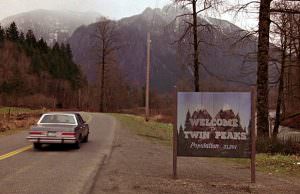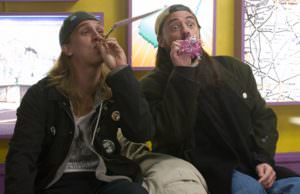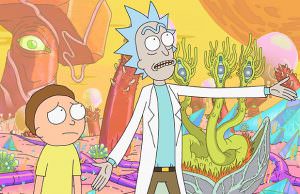Cult Classics: Lethal Weapon
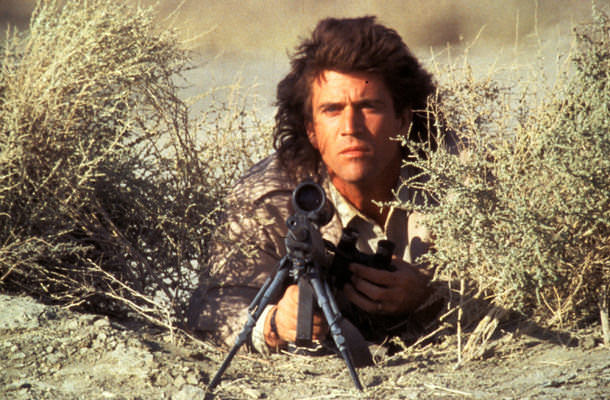
Already boasting a ten-year career which included starring roles in three “Mad Max” films, “The Year of Living Dangerously,” and others, Mel Gibson’s place in Hollywood was well-established by 1987. Over the course of less than two hours, “Lethal Weapon” propelled him from actor to A-list superstar.
Gibson’s Martin Riggs, a narcotics detective vacillating between murderous rage and suicidal depression after his wife’s death, nearly beats an unarmed suspect to death in a drug bust and his LAPD superiors shuffle him to homicide.
Co-star Danny Glover plays veteran homicide detective Roger Murtaugh, who savors time with his picture-perfect wife and children as he closes in on his fiftieth birthday, nursing his career toward retirement. Riggs and Murtaugh are partnered together, against the wishes of both, and one of filmdom’s most beloved duos is born.
Sure, one can probably guess that fellow Vietnam veterans Riggs and Murtaugh are bound to become friends and brothers in arms by the end of the film, but the partnership is built gradually through plot and dialog rich in action and dark humor, which Gibson and Glover execute with gracious skill.
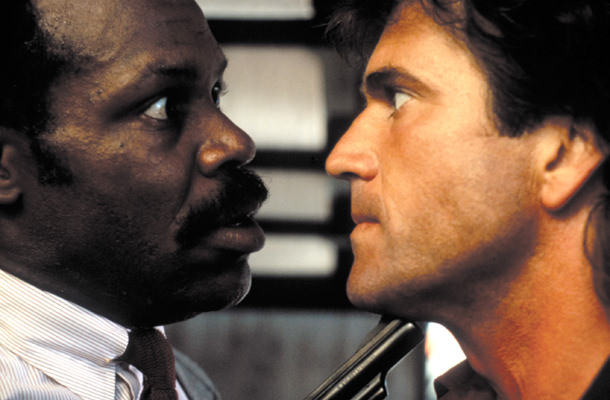
The film’s central plot is set in motion when Murtaugh gets a call from an old Vietnam War Army buddy, who once saved his life in battle. The long-lost friend, Michael Hunsaker (Tom Atkins), is fearful that his daughter has become mixed up in drugs and prostitution and asks Murtaugh to investigate.
It develops that the daughter was indeed involved in illicit activity and leaped to her death from a hotel balcony after taking a poison-laced dose of drugs. Murtaugh and Riggs are already the detectives in charge of the case, and now Murtaugh has a personal stake in unraveling the crime.
Their investigation leads them to a heroin operation run by another former military man, Peter McAllister (Mitchell Ryan), and his psychopathic troubleshooter, Mr. Joshua (Gary Busey). Hunsaker turns out to be involved in laundering the outfit’s drug money, and his daughter’s death is punishment for his attempt to end his dealings with the criminal enterprise.
Those who associate Lethal Weapon mostly with the manic energy of Gibson’s performance, or with Glover’s catchphrase of “I’m getting’ too old for this —-” and his eye-rolling wariness of his new partner, may be surprised by how dark a film this actually is.
Riggs describes a daily ritual in which he battles the urge to end his life, and even carries around a special hollow-point bullet he has chosen to do the job. He also recalls one of his greatest moments, in Vietnam, when he made a thousand-yard sniper shot in windy conditions. It was, he says, the only thing he was ever really good at.
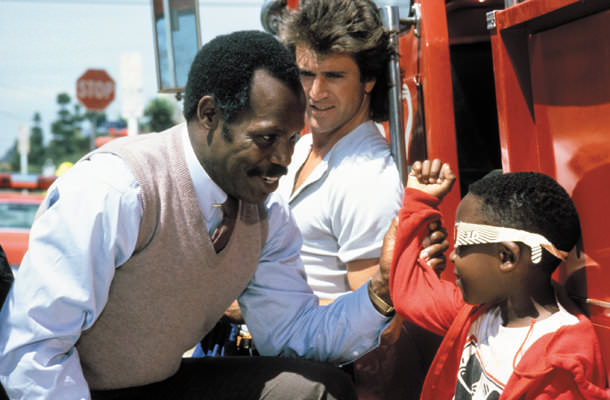
One of the film’s most darkly comic moments has Riggs responding to the scene of a potential suicide, whom he joins on a rooftop ledge. There is a brief negotiation, during which Riggs identifies with the suicidal urges of the subject. Then he grows impatient, handcuffs himself to the jumper and leaps from the roof.
They land safely on a giant inflatable cushion, and a laughing Riggs asks the hysterical jumper “Wanna do it again?” Certainly playing a death wish for laughs is not without precedent in Hollywood: in “Annie Hall,” for instance, Woodie Allen turns a car ride with Annie’s suicidal brother into one of the movie’s funniest scenes.
There are not that many films, however, featuring a character so comfortable with death who delivers as many big laughs as Riggs.
It’s a testament to the screenwriting talents of Black (just twenty-four and fresh out of college when he wrote the movie) that the transition Riggs makes over the course of the film is believable.
The heart of the movie, of course, lies in the growing friendship between the partners. Lethal Weapon is partly a study on the bonds that men form in combat; whether in Vietnam or the streets of Los Angeles.
Riggs and Murtaugh fairly quickly come to trust one another in the life-or-death situations they encounter on duty. However, friendship is a more tentative proposition.
As the partners test the waters, first over running jokes at the expense of Mrs. Murtaugh’s cooking, the family comes to welcome Riggs into the fold. By the time the oldest daughter is kidnapped by the bad guys, it’s personal for Riggs too.
For those who’ve never experienced Lethal Weapon, it’s well worth seeing. Those who’ve seen the film should find it worthy of another go. Director, screenwriter, and actors all walk the line between drama and comic relief faultlessly. It has aged well, and among cop/buddy movies it remains the gold standard.









